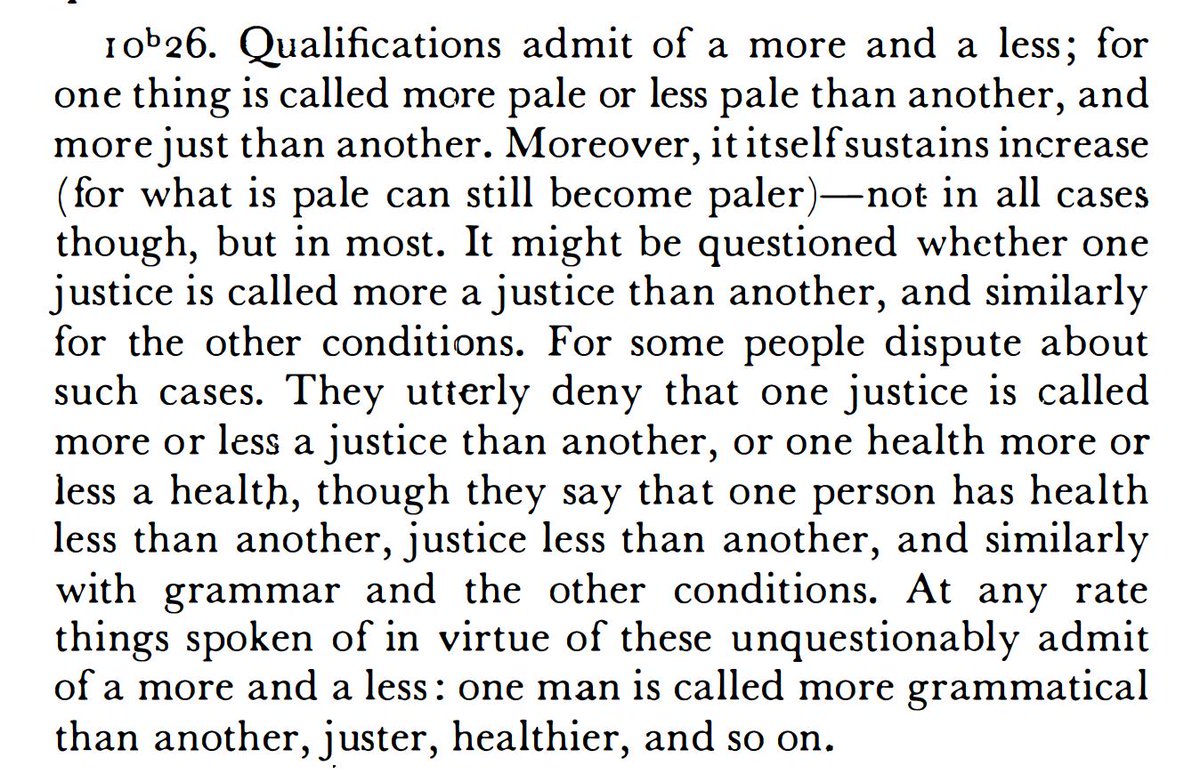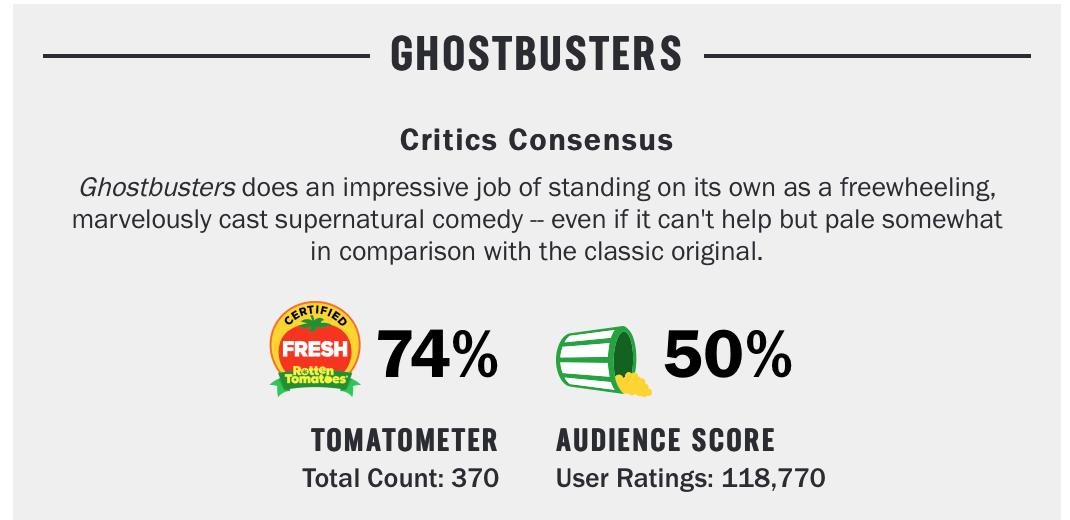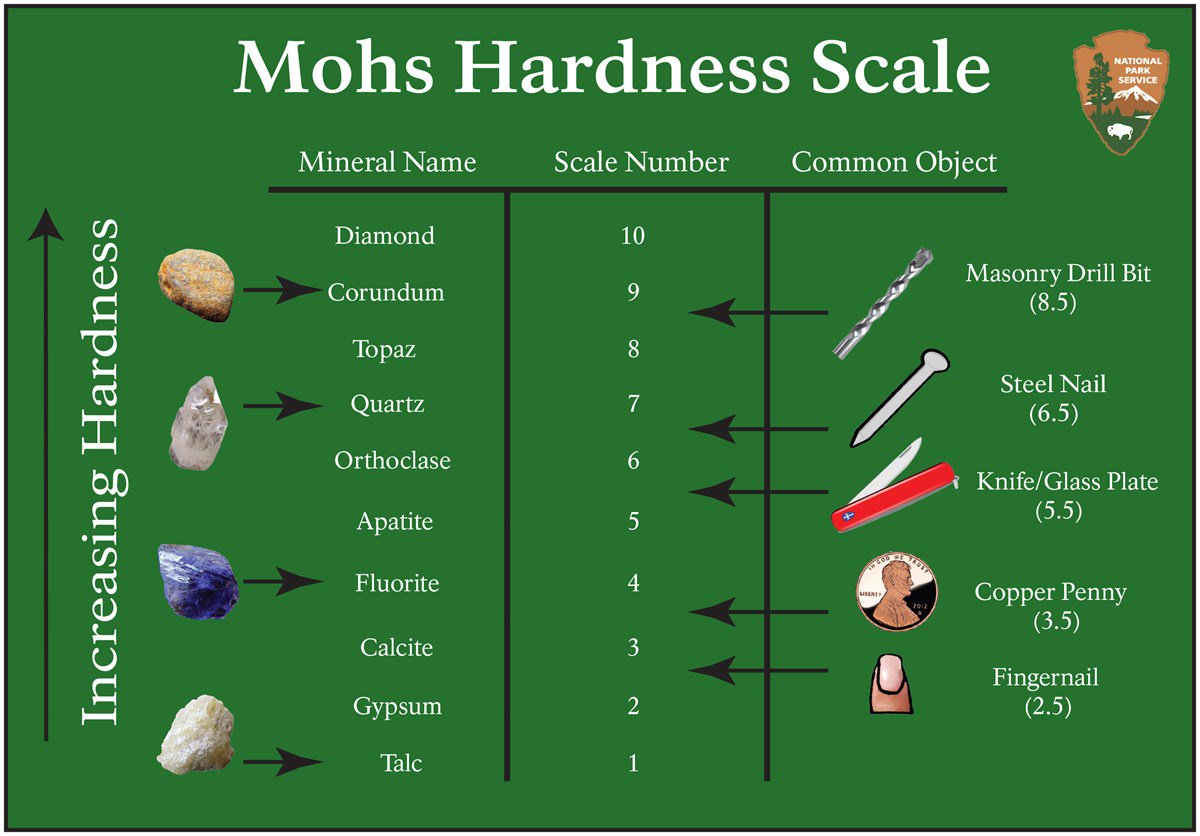“Experiment: the measurement of a predicted quantity under given restraints.”

This purpose is defeated if a term is defined in terms which are themselves obscure or vague.
He would really need to define THESE terms, since he uses them NONSTANDARDLY to ordinary usage.
Qualities can also. For example, one can be more or less skilled, a movie may be more or less good, a joke more or less funny.
Aristotle makes the point:

This is because “measurement” is actually extremely highly resistant to definition.
The committee thought not:
But are we then MEASURING LOUDNESS?
Note the “assignment” of numerals “according to rules.”
1 Nominal scales
2 Ordinal scales
3 Interval scales
4 Ration scales
Since this JUST IS measurement, according to Stevens, assigning numbers to football players is measuring them.
Are you
Very Satisfied
Satisfied
Neutral
Unsatisfied
Very unsatisfied
5 Very Satisfied
4 Satisfied
3 Neutral
2 Unsatisfied
1 Very unsatisfied
or as
1,000,000 Very Satisfied
3000 Satisfied
19.2 Neutral
0 Unsatisfied
-1111 Very unsatisfied
Now, presumably these are NOT MEANINGLESS, but are we really MEASURING something here?


The judgment may be valid, but the quantitative aspect is unreal.
It would be NO DIFFERENT if we used NO QUANTITIES and instead used
A
B
C
D
F
A substance is deemed “harder” than another substance if the one can scratch the other and not vice versa. Some substances were picked as “benchmarks” and given numbers:

Because that’s just the numbers.
You can’t add them.
There’s no meaningful sense in saying a level 6 hardness thing is “twice as a hard” as level 3 one. That’s not true.
Maybe it maps onto a quantity somewhere deeper, or maybe it doesn’t.
The best known Interval Scales are the Fahrenheit and Celsius temperature scales.
In Fahrenheit, freezing to boiling is 32˚ to 212˚. In Celsius 0˚ to 100˚. They measure the same thing, but the INTERVAL is different.
To have the best kind of scale, a Ratio Scale, one needs a ACTUAL ZERO.
If there were such a thing as ABSOLUTE ZERO, then we could have a RATIO SCALE of heat.
Oh, there is and we can!
It was unknown if temperature could EVER be measured as a ration scale or whether it was confined to an interval scale (as HUE seems to be).
Turns out there’s an absolute zero.
Same with length, etc.
Interval scales can only do this RELATIVE to something else.
Ordinal scales can only say “more” or “less” RELATIVE to something else.
Nominal scales say nothing.
Most people, when they think of measuring, think of determining a definite quantity of how much or how many as per a ratio scale.
1st place, 2nd place, 3rd place, etc.
QUALITIES cannot be measured with precision since if they could, they’d be QUANTITIES.
The fact that RATIO SCALES and thus QUANTITIES are central to the natural sciences has misled generations now into thinking “ethics is subjective.”
Good and evil, good and bad, better and worse, right and wrong, just and unjust, fair and unfair, wise and foolish, virtuous and vicious.
I say that child rape is A WORSE CRIME, a MORE EVIL DEED, than insulting someone.
I also say that my knowledge that this is true is stronger than any argument Kopernikus makes.
I think it would be funny.
But it is interesting how far some moral subjectivist will deny reality.
Because “worse” is a QUALITY.
The most we can say is “A hell of a lot worse.”
A judge who sentenced a man who violently raped a child to the punishment normally reserved for shoplifting a Snickers bar wouldn’t just be WRONG but doing judicial malpractice, and should be REMOVED from the bunch.
And we know this.
And looked around the room.
No one could meet his eyes.
That ended all “ethics is subjective” nonsense in that particular class.
We’ve gone for quite a ways on this thread.
He found that CITRUS FRUIT did.
This is considered the first clinical trial in history.
Nope. No quantity was involved, not was anything predicted. It was a “try this and see what happens.”
But the finding was just the empirical discovery “citrus fruits cure scurvy.”
No quantity. No prediction.
Pavlov hypothesized that he could get dogs to associate a bell with dinner. You all know the story: he ran a bell when the dogs were fed, and after a while, when he rang the bell, they’d salivate in anticipation of being fed.
Again. No quantity and no prediction.
A behavior isn’t a quantity.
How can you measure the psyche?
But there’s no SI unit of “obedience.”
1 Qualities are not Quantities.
2 That doesn’t make them subjective.
3 We can judge better and worse.
4 This cannot be PRECISE.
But bear in mind that ONE POINT if nothing else.
This is FALSE, FALSE, FALSE:
"If it isn’t a measurable objective quantity then it must be subjective."
If a person says you have to produce a quantitative proof of that before he believes it, call the police.
These are important to know, so here: questionpro.com/blog/nominal-o…
I lean to “only 4.”
That is “no ratio scale, no measurement.”
But rank-ordering is a real thing, even if it isn’t measuring.
psychology.okstate.edu/faculty/jgrice…









